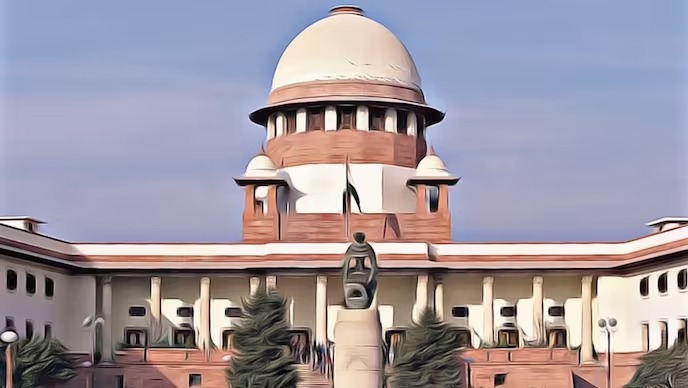R.L. Anand, J.@mdashThis is a landlord''s revision and has been directed against the order dated 7.5.1999 passed by the appellate authority. Chandigarh, who dismissed the appeal of the petitioner-landlord.
2. Krishna Johar filed a petition u/s 13 of the East Punjab Urban Rent Restriction Act, 1949 (hereinafter referred to as ''the Act'') as applicable to the U.T. Chandigarh, against the tenant Prem Singh, on the ground of non-payment of rent and personal necessity. Both the grounds were decided against the petitioner by the learned Rent Controller, vide order dated 30.11.1996. Aggrieved by the order of the Rent Controller the petitioner filed a statutory appeal u/s 15 of the Act and for the reasons given in paras 9 to 15, which are reproduce herein below, the appellate authority vide the impugned judgment dated 7.5.1999, dismissed the appeal:-
"9. As far as; the ground of non-payment of rent is concerned, the same is not pressed at the time of arguments. Even otherwise, the rent having been tendered within the stipulated period, the ground of non-payment of rent is not available to the landlord-appellants.
10. Now, as far as the ground of personal necessity is concerned, the house consists of 1-1/2 stories on 10 marlas plot. On the ground floor, the landlord is residing. The 10 marlas plot consists of four rooms on the ground floor, four rooms on the first floor and two rooms on the second floor. In the present case two rooms have been converted into one drawing room on the ground floor. Thus, the landlords are in possession of three rooms on the ground floor, two rooms on the first floor and one room on the second floor. The tenant is in possession of only one room on the second floor. During the pendency of appeal, it has come that two rooms, which were in possession of the tenant on the first floor have also fell vacant. In these circumstances, the landlords are in possession of 3+4+1 i.e. 8 rooms on the ground floor, first floor and second floor.
11. The family of the landlords consists of appellant Krishna Johar, Umesh Johar, wife of Umesh Johar and three children, who are now aged as 16, 20 and 8 years. Even if, one separate room is given to all the three children and two rooms to the petitioner, then the total accommodation required by them comes out to be 5 rooms. Whereas, they are in possession of 8 rooms. It has also come in evidence that both the married daughters of Krishna Johar reside at Chandigarh and Panchkula respectively. In these circumstances, prima facie, there is no necessity for occupying the room in possession of the tenant.
12. Counsel for the appellants has now submitted that the house being a compact unit, the same is required by the petitioners, because they do not want to share with a stranger. In support of his contention, he has relied upon Hans Raj v. Pakhar Singh 1980(2) R.R.R. 601. In that case the landlord was initially residing in the village and thereafter, he shifted in the house in dispute. In these circumstances, it was held that it is for the landlord to reside without any interference. However, in the present case, the landlords are residing in the house from the very beginning and while they were residing, they have inducted the present respondent, as tenant. Thus, the dictum laid down in the above referred authority is not applicable. Another authority relied upon by the counsel is Budh Singh v. Rajinder Singh (1987)91 P.L.R. 200. In that case also, it is held that it is for the landlord to see as to whether he wants separate accommodation from his son or not. After perusing the authority. I find that the same is also not applicable in the circumstances of the present case.
13. The counsel has now banked upon the statement of one witness examined by the respondent i.e. RW1, who was tenant on the first floor. This witness has admitted that the premises are required by the petitioner for bona fide requirement. This statement, however, is of no help to the appellants. Because, it is the opinion of the witness and it cannot be made a basis for holding that the premises are required for bona fide need.
14. It is correct that the landlord is a master of his own need and he is to decide as to in what manner he is to reside. However, at the same time, if need is found to be mala fide, it cannot be vouched by the authorities under the Rent Act. The initial rent was Rs. 250/- which has been increased to Rs. 300/- and subsequently to Rs. 335/-. It is the case of the respondent that the petitioner wants to increase the rent to Rs. 750/-.
15. Keeping in view the facts and circumstances of the case, I agree with the counsel for the respondent that the need is not bonafide and is only with a view to increase the rent."
3. Aggrieved by the orders of the Rent Controller and the appellate authority, the present revision.
4. I have heard the counsel for the petitioner and with his assistance have gone through the judgments of the Courts below.
5. The only argument raised by the counsel for the petitioner is that the Courts below have not properly appreciated the evidence led by the landlord to prove her personally necessity. It was also submitted by the counsel for the petitioner that it is none of the business of the Rent Controller or the appellate authority to assess and judge how the landlord will utilise the property after getting the possession from the tenant. The counsel submitted that the house in question is a compact unit. There is only one latrine and bathroom in the top floor. The petitioner has married daughters though residing at Panchkula and Chandigarh but they visit her occasionally and, in these circumstances, the need of the petitioner was bona fide. It has also been stated that the petitioner has grown up children.
6. I have considered all the submissions in the light of the discussion made by the Rent controller and the first appellate authority. The requirement of the Act is that necessity of the landlord must be bona fide. The wish of the landlord cannot prevail. The petitioner cannot be allowed to remain in such state of affairs that it may become an excuse for seeking ejectment for herself. It has been rightly discussed by the appellate authority that the petitioner landlord is in possession of 8 rooms and if one room is given to each member of the family, still there are three rooms surplus in the house in question. In such circumstances, it has been rightly concluded as a question of fact that the need of the petitioner was not bona fide.
No merit. Dismissed.

